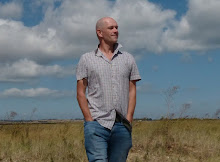Sometimes the sustainable living ideology gets taken too far - the idea of eating roadkill isn't likely to persuade many people to live in a more sustainable way. I think that the push for locally produced food is a good idea, not only in terms of the environment but in terms of taste. I remember the first time I tasted a watermelon immediately after picking it in Australia. I couldn't beleive that the delicious thing I was eating was the same as the tasteless pap that passes for watermelon in supermarkets in the UK. Still, sometimes things just aren't available locally; I like coconuts and they just aren't going to grow well here in East Yorkshire and I guess that the coconut is just about the only export product from many small tropical countries.
Locally produced food, though, has the advantage of reducing carbon emissions through a decrease in transport and often in terms of the amount of energy used in processing and packaging, as locally bought foods often come straight from the farm to the market.
One particular farmers' market in Canterbury, Kent, provides not just locally produced food, but locally hit roadkill! Fergus Drennon has been a forager and scavenger of food since the age of 6 or 7 apparently, and only eats meat when he finds it dead on the road, regularly selling foraged food at the market in Canterbury. In a way I quite like this idea - I don't like seeing things wasted and I'm sure that many freshly killed animals are quite tasty. However, maybe it's the sort of thing best kept to oneself? Whilst people like Fergus may pride themselves at the sustainability of their lives, this type of environmental fanaticism may well discourage many people from making sustainability part of their lives.
Fergus, though, does share my distaste for supermarkets (maybe he worked in one too), saying that it is unlikely that supermarkets will stock the unexpected treat of unlaid eggs within a roadkilled bird!!!! Still, he says that he is very happy with his lifestyle, and that is what matters, and I would assume is something that many supermarket shoppers could not honestly say. At least this is what it seems to me by the miserable expressions on the faces of most of the customers where I work.
Locally produced food, though, has the advantage of reducing carbon emissions through a decrease in transport and often in terms of the amount of energy used in processing and packaging, as locally bought foods often come straight from the farm to the market.
One particular farmers' market in Canterbury, Kent, provides not just locally produced food, but locally hit roadkill! Fergus Drennon has been a forager and scavenger of food since the age of 6 or 7 apparently, and only eats meat when he finds it dead on the road, regularly selling foraged food at the market in Canterbury. In a way I quite like this idea - I don't like seeing things wasted and I'm sure that many freshly killed animals are quite tasty. However, maybe it's the sort of thing best kept to oneself? Whilst people like Fergus may pride themselves at the sustainability of their lives, this type of environmental fanaticism may well discourage many people from making sustainability part of their lives.
Fergus, though, does share my distaste for supermarkets (maybe he worked in one too), saying that it is unlikely that supermarkets will stock the unexpected treat of unlaid eggs within a roadkilled bird!!!! Still, he says that he is very happy with his lifestyle, and that is what matters, and I would assume is something that many supermarket shoppers could not honestly say. At least this is what it seems to me by the miserable expressions on the faces of most of the customers where I work.






